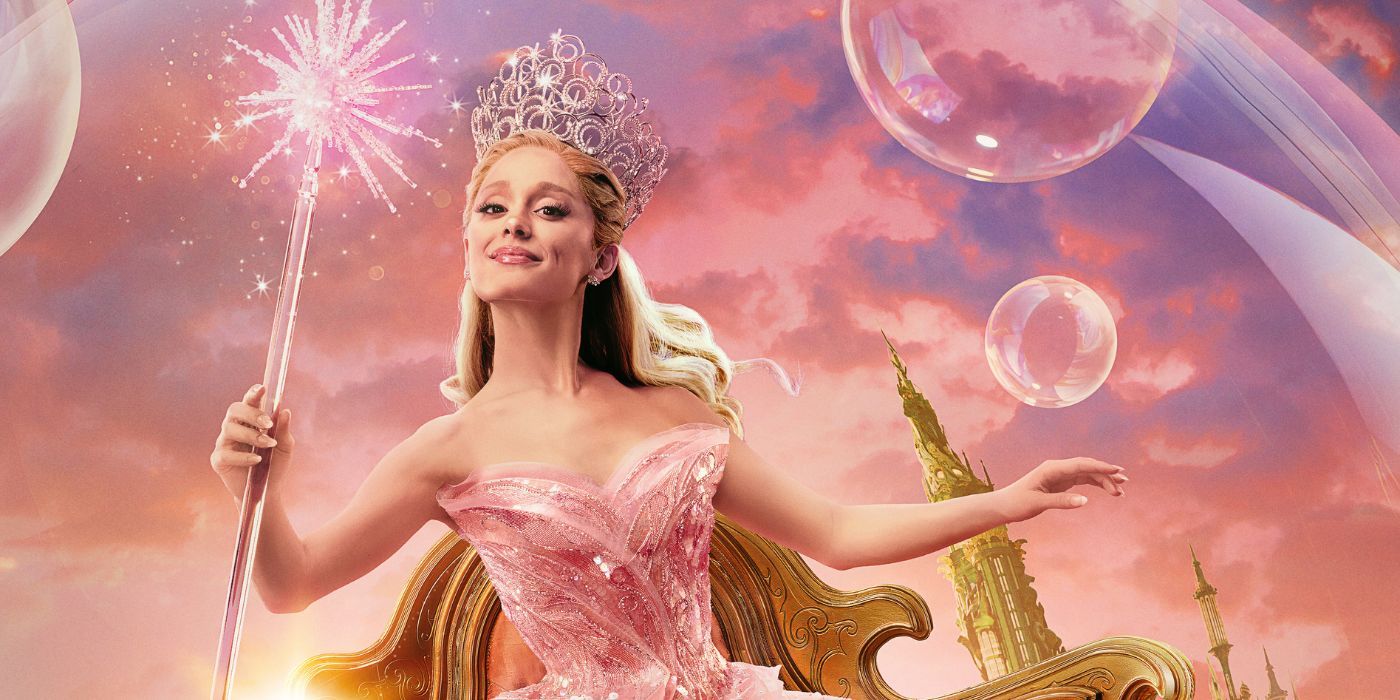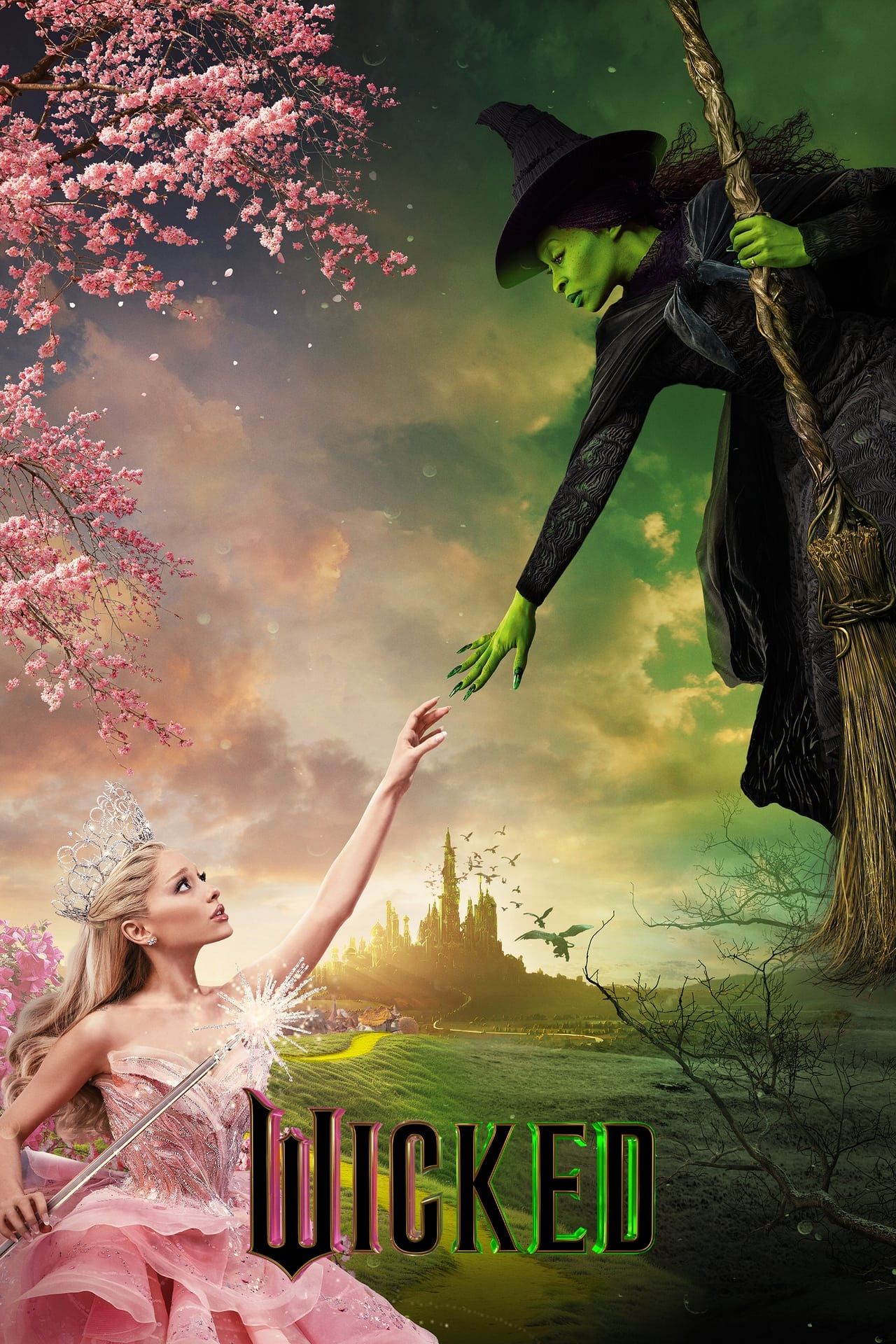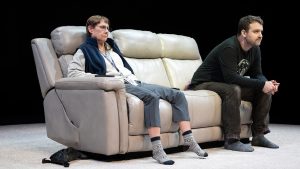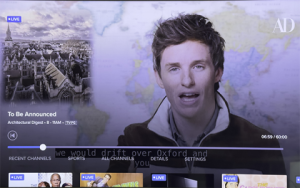
Despite always being a huge part of the moviegoing audience, it’s unfortunate how long LGBTQ+ fans had to wait to see their identities reflected onscreen. It’s because of this decades-long ignorance that these viewers invented “queering,” the practice of identifying Queer subtext within films that are clearly representing the LGBTQ+ experience but refuse to call it out explicitly. While modern audiences are lucky to have much more representation, there are still many movies that try to hide these parts of their story, that reduce them to subtext and push viewers to try and find them — luckily, Wicked is definitely not one of those.
This John M. Chu hit follows two young witches defying the odds (and gravity) to not only take on their fascist government but come to love one another in a relationship that many are acutely viewing as romantic. This doesn’t discredit their genuine friendship or that each woman can have feelings for men, but rather emphasizes that among their many other complexities, these characters are clearly struggling with embracing their LGBTQ+ identities in this restrictive world. It’s a core aspect of the film that both viewers, the minds behind the plot, and even the main actresses have been quick to state: Wicked is a blatantly LGBTQ+ story, and it is so much better for it.
Proud to Be ‘Wicked’ Through and Through
While many viewers are learning about the wonders of Wicked through the film adaptation, longtime fans of the project have had more than twenty years with this entrancing story of magic and mayhem. It follows the peppy Galinda (Ariana Grande) and the fierce, green-skinned Elphaba (Cynthia Erivo), two young women who are forced to room together at Shiz University in the wonderful land of Oz. While the film ends with this pair becoming best friends and Elphaba finding her true power, it definitely doesn’t start the way; fans watch as Elphaba is discriminated against her entire life for her skin color and ability to wield magic, facing harmful misconceptions that Galinda initially adopts before learning more about her roommate. While fans have resonated with both characters, it’s Elphaba’s arc that has drawn so many in with her heartbreakingly relatable experience of feeling judged by everyone for simply being seen as different. It’s devastating to watch, yet it makes the finale where she stands in her true self and proudly wears the title of “wicked” so much more endearing to watch — especially since it’s a journey that many LGBTQ+ people have embarked on themselves.

Related
‘Wicked’s Best Moment Doesn’t Even Involve a Song
Actions speak louder than words.
The Queer roots of Wicked run deep, starting with the man who initially wrote the novel it’s based on, Gregory Maguire, being openly gay himself (and purposefully making the sexualities of his main characters ambiguous). Even beyond that, the LGBTQ+ aspects of this story are evident for anyone willing to see; even if viewers don’t recognize Elphaba’s fight to learn and love herself as a blatant mirror for someone accepting their sexuality, there’s a clear physical and romantic chemistry between the two leads. Showcased in the song “What is this Feeling” where the women sing about how they hate each other, yet are irresistibly transfixed by one another — a setup that has created some of the best romantic comedies — the romantic tension is so evident that even Grande herself has called out her character for being “a little in the closet.” This doesn’t discount the feelings each one has for the male lead, Fiyero (Jonathan Bailey), but rather it deepens the journey of self-discovery that is this entire film. The witches are discovering aspects of their society and themselves that have been barred from them for so long, with Galinda being threatened by social norms to ignore them or face the vitriol that Elphaba has always experienced for being noticeably different. It is an utterly relatable experience, one that the film deepens by embracing the Queer feelings at its center to show that, just like its characters, it is so proud of the things that some people will say it should despise.
This ‘Wicked’ Love Doesn’t Come At Too High a Cost
Anyone who questions whether Wicked is an LGBTQ+ film only has to look at what literally all the biggest names attached to this franchise have been saying for more than two decades. Not only Grande, Erivo, and the man who created this plot, but the musical’s most famous Galinda, Kristin Chenoweth, has used the film’s recent release to state that she also saw her character’s feelings as deeply romantic. Along with this, the movie has multiple LGBTQ+ main and side characters, with the film’s insistence on showing how completely attracted everyone is to Fiyero (no matter their gender), clarifying that Oz is a world filled with different sexualities and identities. Beyond all of these factual aspects, though, it’s how Wicked’s plot is rooted in challenging the status quo that makes its LGBTQ+ themes so essential. Elphaba’s story of coming to love the things about herself that others say she should hate is one that many Queer people experience when they first come out. And if viewers “hold space” with that truth and understand that they’re watching two LGBTQ+ people try to become their truest selves onscreen — a fight that so many live daily — they’ll manage to grasp the triumphant significance that has made this one of the most impactful movies in the world today.
Wicked is Available to Watch Now In Theaters
GET TICKETS







